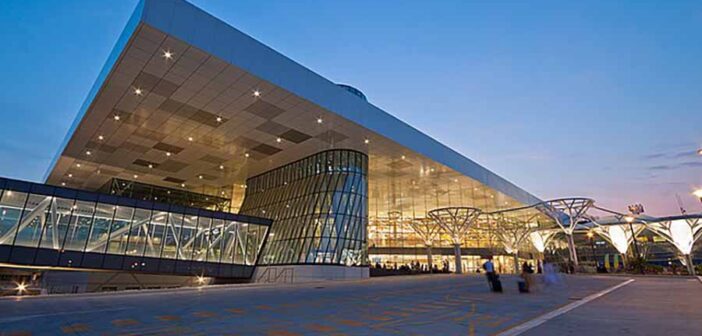Split Airport, officially named Split Saint Jerome Airport, serves as a key gateway to Croatia’s Dalmatian coast, handling around 3.6 million passengers annually. Located 19 kilometres from Split’s city centre in Kaštela, near Trogir, this airport connects travellers to over 60 destinations across Europe, with airlines like Croatia Airlines, easyJet, Ryanair, and Wizz Air. Its modern terminal, expanded in 2019, offers a practical base for exploring Split’s historic sites and Adriatic beaches.
Accessing the airport is straightforward, with several transport options ensuring a smooth journey to the city. The Pleso Prijevoz shuttle bus departs 30 minutes after flight arrivals, reaching Split’s main bus station in 40 minutes for €8, with tickets available online or at the arrivals counter. Local bus 37, operated by Promet Split, runs every 20 minutes to the city centre in 45 minutes for €4, bookable via the Promet Split app.
Taxis outside the arrivals hall cost €35-45 for a 25- to 30-minute ride, though pre-booking with services like Welcome Pickups ensures fixed fares. Car rentals from Avis, Hertz, and Europcar are available in the terminal, with a Kiss & Fly zone offering five minutes of free drop-off parking. Drivers benefit from the airport’s proximity to the D409 coastal road, with 500 parking spaces at €2 per hour. Booking transport or parking in advance is recommended during peak summer months.
The airport’s single terminal, expanded to handle five million passengers yearly, features a ground-floor arrivals area with baggage claim and a first-floor departures zone with 52 check-in desks and 12 gates. An enclosed bridge over the D409 road connects to parking and bus facilities.
Security checks take 10-20 minutes, but queues can extend during June to August, so arriving 2.5 hours early for international flights or two hours for domestic is advised. Clear signage in English and Croatian aids navigation, though bus transfers to aircraft are common due to limited airbridges. Passenger reviews note occasional confusion at check-in due to crowded conditions.
Delays can arise during the busy summer season, with weekends seeing over 200 flights and 50,000 passengers. Weather, such as strong winds or storms, may disrupt schedules, and passenger feedback mentions long queues at security or passport control for non-Schengen flights. On-time performance is generally reliable for Croatia Airlines and major carriers, but checking flight status via the airport’s website or Flightradar24 is prudent. Staff shortages or disorganised bag drops, as noted in reviews, can also cause minor delays.
Dining options are limited but functional, with five cafes and three restaurants on the first and second floors. International passengers enjoy airside eateries serving pizza, sandwiches, and Croatian dishes, open from 06:00 to 22:00, while domestic travellers have access to a single kiosk with snacks and coffee. Landside, a café offers light fare. Retail includes duty-free shops in the international departures area with perfumes, alcohol, and souvenirs, plus a souvenir shop and newsstand. Prices, such as €3.50 for water, can be high, and some outlets are cash-only, so carrying local currency is wise.
Facilities cater to traveller needs, with free Wi-Fi for 60 minutes via the airport’s network, accessible with a login code. ATMs and currency exchange by OTP Banka are located on the ground floor, though rates may be less favourable than in the city. Toilets, including accessible and baby-changing facilities, are available on both levels, with reviews praising their cleanliness. The Business Lounge on Level 1, accessible to business-class passengers or elite status holders of airlines like Lufthansa and BA, offers snacks, drinks, and Wi-Fi for €18-20. Baggage storage costs €5-10 per item, and a Passenger Assistance area on the ground floor provides wheelchair support, bookable 48 hours in advance. The airport operates from 06:00 to 22:00, with nearby hotels like Hotel Adria, 5 kilometres away, offering shuttle services.
Connections are primarily point-to-point, with minimum connection times of one hour for domestic and 90 minutes for international flights. The compact terminal simplifies transfers, but non-Schengen passengers may face passport control, requiring extra time. Most connections route through hubs like Frankfurt or Zagreb, so checking schedules is essential.Split Airport’s modern infrastructure, accessible transport, and essential amenities ensure a practical travel experience.




